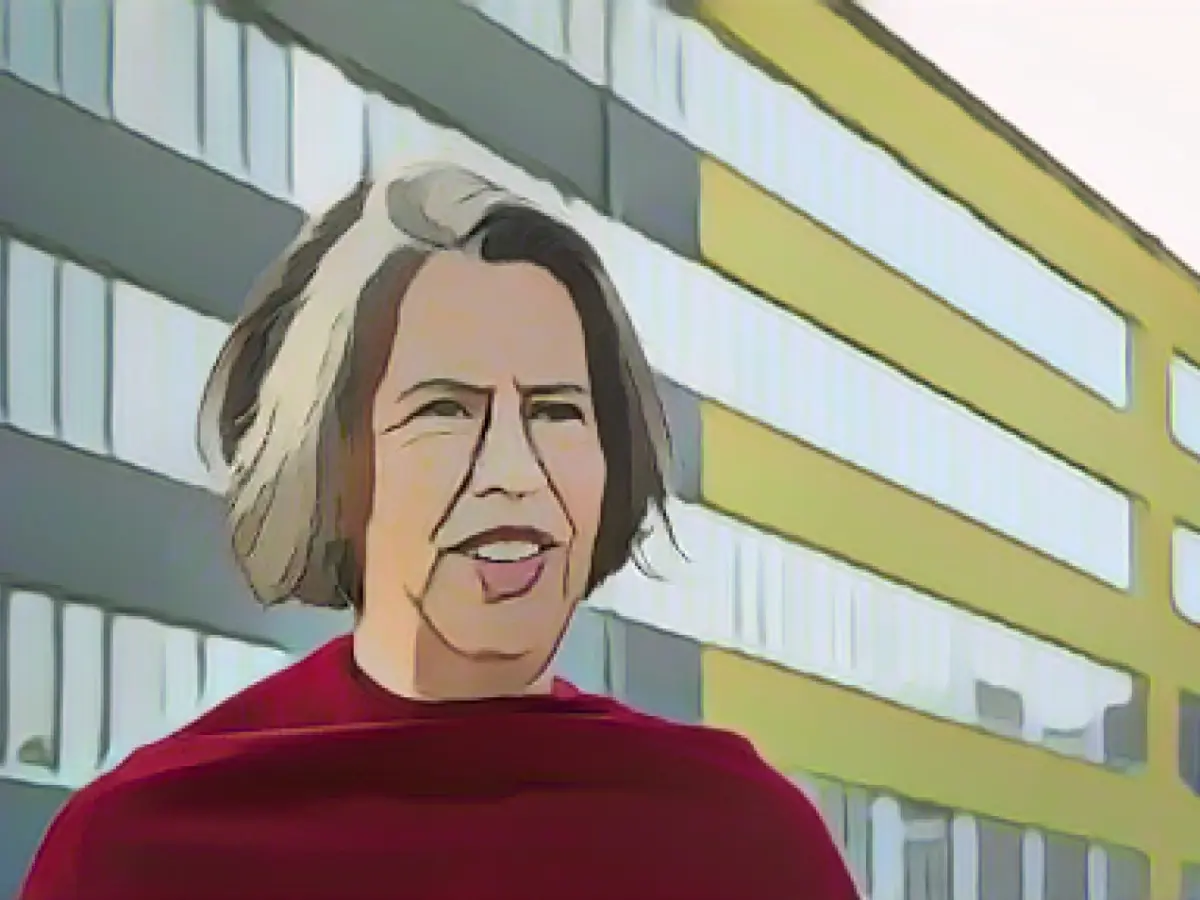Migration - Fewer asylum seekers - Zieschang calls for border controls
This November, significantly fewer asylum seekers have arrived in Saxony-Anhalt than in the same month last year - thanks to border controls with various neighboring German countries. According to the Ministry of the Interior, the weekly number of arrivals has been falling significantly for a good five weeks. Last week, 153 people seeking protection were admitted, compared to 124 the week before. In the last week of October, there were still 191 and in the first week of November 221. Interior Minister Tamara Zieschang (CDU) is calling for permanent controls, including at the EU's external borders.
In addition to the existing border controls with Austria, the introduction of temporary internal border controls on October 16, 2023 at the borders with Poland, the Czech Republic and Switzerland is obviously having an effect, according to the ministry. For a landlocked state such as Saxony-Anhalt, the effects were somewhat delayed. The federal states with external borders forwarded the refugees to other states such as Saxony-Anhalt after a certain quota.
"Under pressure from the federal states and only after much hesitation did the federal government decide to introduce internal border controls at the land borders with Poland, the Czech Republic and Switzerland. It has now been confirmed that internal border controls are an effective means of combating irregular migration," explained Interior Minister Tamara Zieschang (CDU).
"In order for the numbers to continue to fall, permanent and not just temporary controls are needed. And preferably at the EU's external borders," she continued. "However, as long as these are not sufficiently protected and uncontrolled travel of asylum seekers within Europe is not effectively prevented, internal border controls cannot be dispensed with." Controls are a first important building block for limiting illegal migration. "Further building blocks are the expansion of the list of safe countries of origin to include Armenia, India and the Maghreb states as well as the repatriation of those obliged to leave the country," Zieschang continued.
Sebastian Striegel, spokesperson for home affairs for the Green parliamentary group, on the other hand, demanded: "Permanent border controls within the EU must be ended as quickly as possible. They hinder the free movement of goods and unhindered travel within the EU." Permanent border controls call into question the very essence of the EU.
"Instead of making populist demands, Saxony-Anhalt's Minister of the Interior should stand up for humanity and order at the EU's external borders. We need legal options for immigration to the EU, safe routes for asylum applications and humanitarian migration, as well as swift and human rights-based decisions on the possibility of staying and the consistent return of people who have no prospects of staying here."
Read also:
- The decrease in asylum seekers in November compared to the previous year month in Saxony-Anhalt is attributed to effective border controls with neighboring nations.
- Tamara Zieschang, the Interior Minister of Saxony-Anhalt (CDU), advocates for permanent border controls, including at the EU's external borders, to combat irregular migration.
- The introduction of temporary internal border controls on October 16, 2023, at the borders with Poland, the Czech Republic, and Switzerland is having a significant impact on migration, according to the Ministry of the Interior.
- According to Zieschang, internal border controls are necessary until the EU's external borders are adequately protected and uncontrolled travel of asylum seekers within Europe is effectively prevented.
- Sebastian Striegel, spokesperson for home affairs for the Green parliamentary group, argues against permanent border controls within the EU, claiming they hinder the free movement of goods and travel within the EU.
- The Green parliamentary group calls for legal options for immigration to the EU, safe routes for asylum applications, and humanitarian migration, as well as swift and humane decisions on the possibility of staying and the consistent return of people with no prospects in the EU.
Source: www.stern.de








